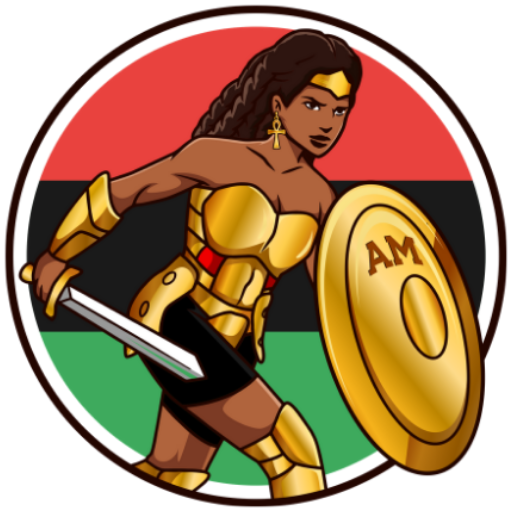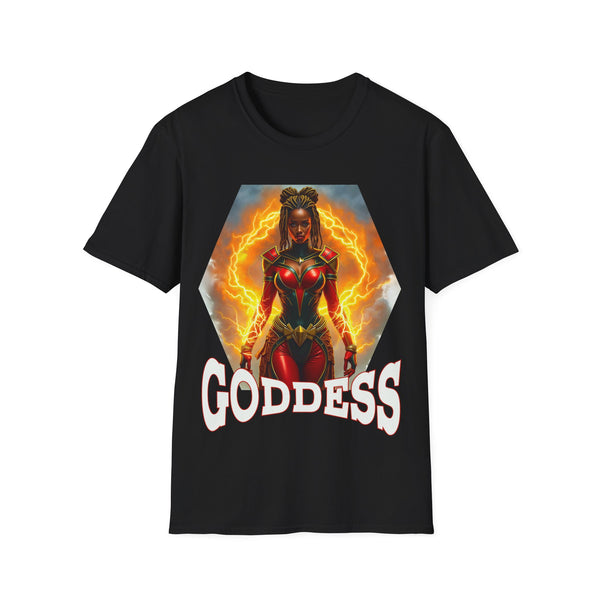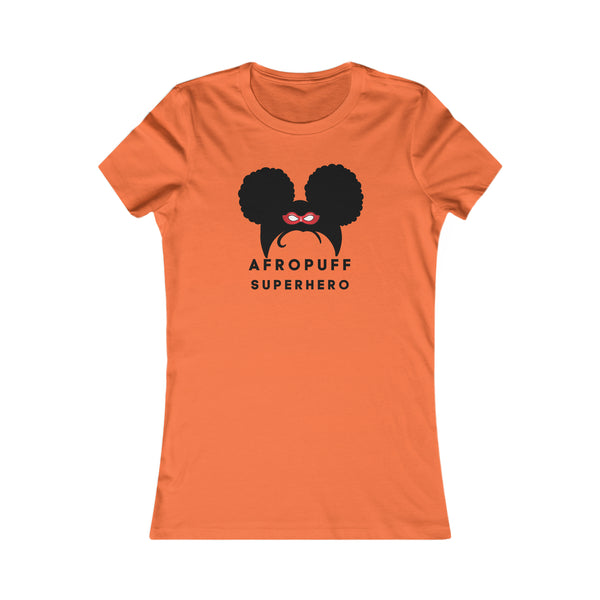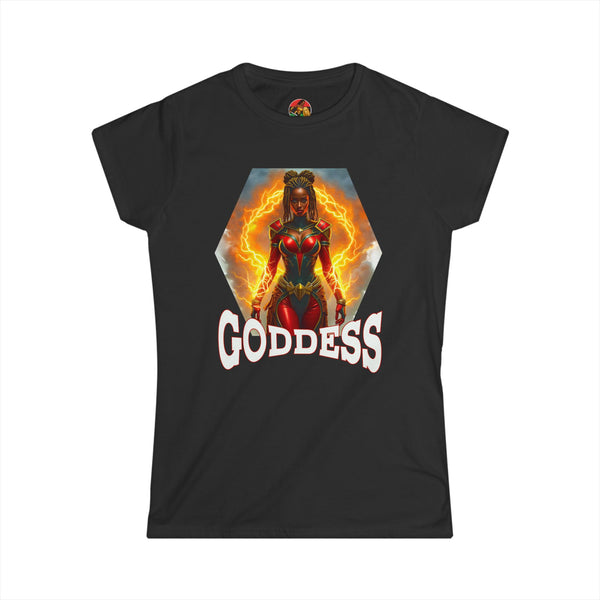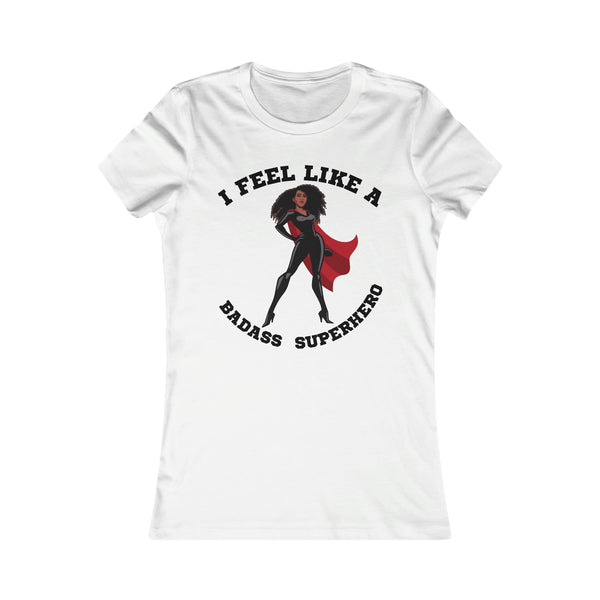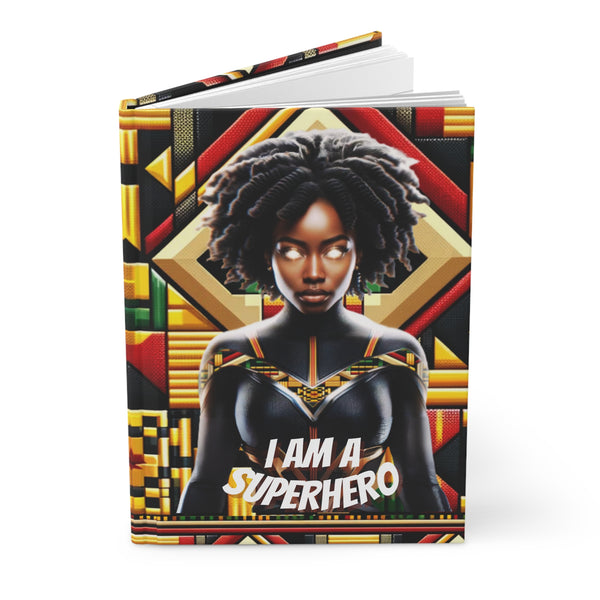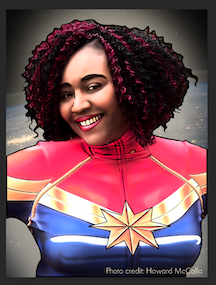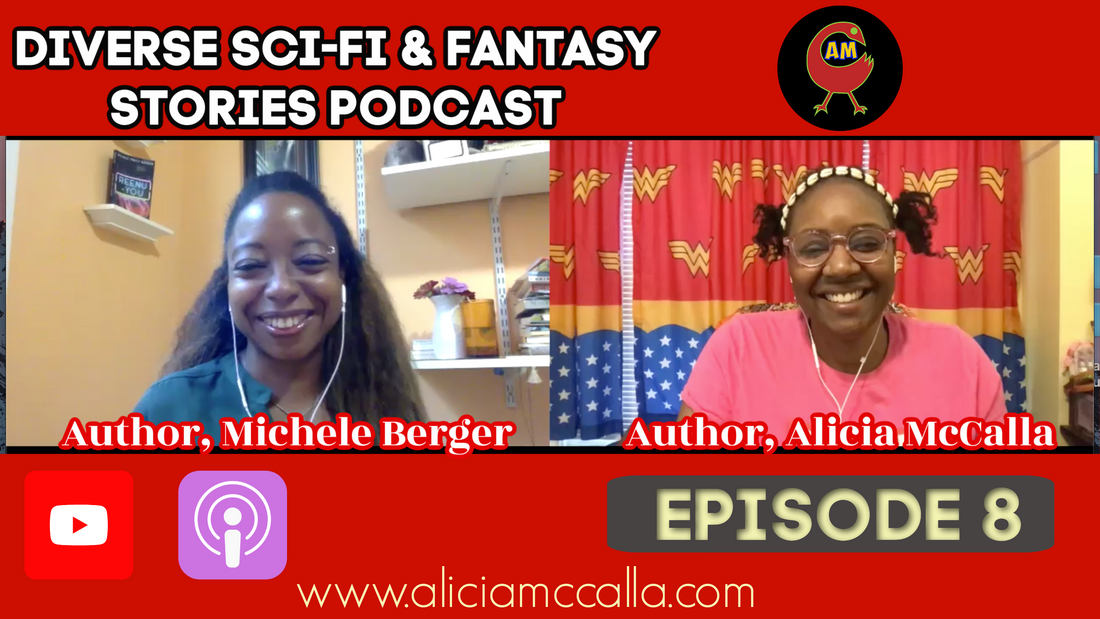
Alicia McCalla's Interview with Michele Tracy Berger
Share
Alicia: Okay. Hey everybody. And welcome to my writing playground. This is episode eight of Diverse Sci-Fi and Fantasy Stories podcast. I'm your host, author Alicia McCalla. Thanks for tuning in. This podcast is all about me honoring my son's legacy by sharing my diverse science fiction and fantasy stories with the world. Today, I have the wonderful opportunity to share the works of another author who writes diverse science fiction and fantasy. Let me tell you about Michele. Michele Tracy Berger is a professor, a creative writer, a creativity coach, and a pug lover. Her short fiction, poetry and creative nonfiction has appeared or is forthcoming in 100 word story, Glint, Thing, FIYAH: The Magazine of Black Speculative Fiction, Flying South, Oracle: Fine Arts Review, Carolina Woman, Trivia: Voices of Feminism, Ms., The Feminist Wire, Western North Carolina Woman, various zines in anthologies. Her science fiction novella Reenu-You, was recently published by Book Smugglers Publishing. Much of her work explores psychological horror, especially through issues of race and gender.
Alicia: Hey, Michele. Welcome. I'm excited to see you.
Michele: I'm so happy to be here. It's wonderful.
Alicia: All right. I want to share that Michele is also one of the Slay vampire Noire anthology author. High five, right? You know what, Michele, can you just give us a brief hint about what your slave story is all about?
Michele: Absolutely. Thank you. And thank you for that introduction. So my story is called Blood Saviors and it basically plays with the moral question of, what would one race do to another in order to survive. So it's got fairies, vampires and humans, and the main character who is a vampire goes to investigate a case and finds that perhaps for vampires for survive, cause there's a virus in this world, other people might have to be sacrificed. And so she wrestles with that moral choice.
Alicia: All right, cool beans. I can't wait to see it when Slay releases. Alright. So let's talk about the scene that you decided to share today from Reenu-You. And I know it's a short, but will this eventually become some type of series?
Michele: Well, yeah. I would love to have a; I think of it as the Reenu-You universe. So this is a novella and basically the heart of the question is, you know, what if a trip to the beauty salon could kill you? What if there was a virus that got transmitted through an everyday haircare relaxer, especially one build as a natural relaxer. And so it follows two protagonist, one Cat, who is coming back. And it's set in the 1990s in New York and she's coming back to pack up her deceased mother's things. She's biracial. She's got a little bit of a chip on her shoulder for lots of reasons.
Michele: The excerpt I'm going to read is from Constancia, who is a young Puerto Rican woman about to start a new life and they both use the Reenu-You product and they basically have to search for answers when things go terribly awry in their lives and they meet up with other women of color and have to try to figure out what's going on related to this virus.
Alicia: Gotcha. Okay. So you want to tell us, why are you the person to tell this short story and actually what makes this story unique to you? I'm thinking, relaxers.
Michele: Well, I think we have to follow our obsessions and I know you are really driven by some of your core interests. And so I'm really interested in the politics of beauty and this was an opportunity to explore that. I also am interested in the nature of viruses and conspiracies. And so I intentionally set it in the 1990s because it was, you know, prior to our ability to use cell phones and speak to each other instantaneously and kind of playing with those themes of what do people know, what kind of rumors were happening? Is it a conspiracy to kill minority women? So the book gets to play with all that.
Michele: So, I think one of the questions you're gonna ask me is related to like, how did I come up with this idea so I'll just say. So I was kind of always thinking about the politics of beauty, kind of these push pull effects, right? Like that. You know, what are the things--- Can everyone does something with their hair? Like I tell people, you know, male, female, of race, ethnicity, dying your hair, cutting your hair, doing things, everyone does something, and I kind of didn't see that represented in science fiction and fantasy. So I'm interested in kind of that aspect of beauty culture. But there was actually a product on the market in the 1990s. And some of your viewers if they're old enough, may remember, is called Rio. And it was one of the first haircare products that I can remember that was marketed as an infomercial and literally you had models.
Alicia: I remember that. Yeah.
Michele: And like they would dip their fingers in and say, "Oh, it's so good to eat. And it was like [inaudible] from Brazil and had all these organic, right. So, I never used the product, but I remember seeing these infomercials. And then about a year or two later, there was a class action lawsuit brought by mostly black women, some women of color, but mostly black women basically saying they use this product and when all was said and done, the product had actually more detrimental ingredients in it than a regular kind of hair relaxer.
Alicia: Yes. I remember Rio.
Michele: Yeah. And I just started thinking about, what are the one kind of this of corporate model of like, how could they allow this, right, but then our own investment. And I have to say, you know, I'm not someone who's like, "no relaxer." I mean, I have a Brazilian. You can't really tell right now, but I have a Brazilian blowout. So it's not about like, you know, whether people do or don't do certain kinds of things to their hair. It's understanding a little bit more that psychological and cultural level, what are the ways that we trust companies and also what are we hoping to gain from doing certain kinds of things. Right. Certain kinds of adornments. And so I kind of get to play with all of that in this novella.
Alicia: Right. So you kind of gave us the inspiration behind the novella. But can you tell us, even maybe talk a little bit about the theme. Do you have a special theme though, that you were really trying to impart to people?
Michele: You know, it's funny because I feel like --- The story is like, you know, my heart and soul in many ways, but I feel like I know so much more about story structure now. And so it's funny, the Slay story that we were talking about earlier, I actually went into that story wanting to write about the theme of, how do you make a choice around who should live, who should die? But for this, I think one theme is finding your true people, right? And your true people, both are protagonist, Kat and Constancia are loners for different reasons. And they both are a little antisocial, we might say or suspicious of other people and also maybe suspicious of other women. And so for me, that theme is about, you know, finding your true people and overcoming the boundaries of hyper-individualism like feeling connected to a group. So they both struggle with that throughout the novella and come to some reckoning around that.
Alicia: Gotcha. So is this a theme about, I guess in a way, finding your tribe or your group. Is that something that you've personally experienced or something that just kind of fascinates you? Tell us a little bit more about the inspiration surrounding your theme.
Michele: Yeah, that's a great question and I would say that for a long time I had this kind of maybe internal struggle with the smarty Michele and the creative Michele and so, in my early life I walked the path of the smarty Michele, cause that's what I got a lot of accolades for. So, you know, college and then graduate school and as you and I have talked in other context, kind of pursuing an academic path. So I think for me, I think I've always been interested in finding the creative tribe and the creative community. Not so much around issues of identity, but just more around finding people who, I call it, it some of my workshops that I do, I call it swanatude versus duckatude. You know, finding your swans. Ducks are amazing. Ducks are great. You know, they do their thing, but if you're a swan among ducks, they're not gonna appreciate your swanatude. So it's sort of like finding the people who really affirm you, that you feel connected to from a creative standpoint, right. And that's you know, part of also one of the pleasures of getting to know you over the last couple of months, because you're part of this amazing creative community and doing great things.
Alicia: I appreciate that. Okay. I'm just wondering about the diversity in your story. So you've obviously had the realm of the diaspora because you've got Puerto Rican and what was your other character?
Michele: So Kat is biracial and then the other women that they connect with are all African-American.
Alicia: Gotcha. So you've got some great diversity in your stories, but can you let readers know why they should give your particular stories a shot? What is it about the diversity in your stories that would be riveting for them?
Michele: Well, a couple of things. I don't think I thought about this consciously as when I was writing it, but it's clear to me that I'm trying to push out these ideas of that black women, women of color cannot get along because what we see in reality TV, what we see around us is that there's this idea that people are jealous, they're bickering, they're petty. And so for me, like, I think if people want a story that has kind of some thriller aspects, that kind of deals with kind of our everyday issues and is grounded in kind of a collective female friendship, because I truly believe that women of color have had to be there for each other as witnesses, as guides and that comes across in the book.
Michele: People I know who've read it really have appreciated that aspect of it, that it's about this kind of collective female friendship that happens over time and they then have to kind of move forward. And I'll just say, a couple of other things about that, is when we think about and we're both of an age to see how speculative fiction has changed and speculative media. But when we talk about like, you know, women of color, when we think about some of the most popular franchises, really, if there's a woman, there's usually like one woman and a bunch of dudes. Like wonder woman, I love wonder woman, right? Don't get me wrong, I saw her twice. But it's really like one woman and a bunch of dudes or an, or historically when it is a group cast, it is one person of color with all dominant people and I really wanted to flip that to show kind of this collective ensemble cast, based in women of colors realities and move that forward.
Alicia: I don't want to shut you down with that, but that concept of collective female togetherness is quite powerful, especially for black women cause you are right. The idea of a stereotype is Atlanta Housewives. Constantly fighting and bickering.
Michele: Oh gosh, yes.
Alicia: But the way that I was raised and the truth surrounding it is that most black women come together and are very supportive when bad things happen or when you need someone, it is your sisters who come out to help you and to support you and that is not really shared, I think.
Michele: No, and it's not shared. I mean, I think speculative media is changing very rapidly, but still it's also, we have this idea of the one heroine, right? So trying to also push against that because we know, when we think about so many, just in terms of history, so many amazing movements that black women, women of color have founded and been a part of. It's a collective sense of leadership, it's a collective moving forward. It's not just about the one. So I think with that, and then I think the novella tries to leave the reader a little bit off centered at different times. It's like, well, what is going on, right? Is it a conspiracy? Is it psychic abilities that are happening? And I think that can be a really fun journey for the reader to go on this wild ride with these five women trying to figure out what's going on as their faces are --- You know, there's rashes and all kinds of things are happening to them and knowing the doctors, they are not really paying attention in this story.
Alicia: Alright. So it sounds like you have more than one protagonist. Is there one that, I mean, we're looking at the one character and you're seeing, but you want to talk about her and what's at stake for her, or do you want to kind of talk a little bit more about your five women.
Michele: I'll talk about cause Constancia, cause she's such a fun character to write for me. So Constancia is, I think 18 or 19, she's about to start school at the Fashion Institute of Technology. She has aspirations. She grew up in the hood and she has a chip on her shoulder for different reasons than Cat. And she is, I like to think of her sort of like the diamond in the rough. And like many people who have maybe not had all the opportunities, she has some preconceived ideas about her world and the people around her and then that becomes a source of conflict when her and Kat and the other women meet up with each other. But she is raw and tender and truth telling, and like I said, I love being in her voice and she has such a different voice than my other character Cat.
Alicia: Okay. Alright. You ready to share?
Michele: Okay. Let me get my glasses on. Pull up my document here. Okay. All right.
Michele: Constantia, August 1998. The Bronx. The bottle, yo. I don't even know how to say it, on the counter, right. When I picked it up, the bottle was glowing in my hand. It felt warm and shit. I couldn't take my hand off of it. Yeah. Check it out. "Are you playing with the bottle or are you going to buy it?" This bug eyed girl with overdone green eyeshadows said that to me from behind the cash register and broke my concentration. "Shut the fuck up Pooda. I'm checking it out. Okay." I come in here all the time to this rinky dink store with dusty merchandise and all I can get is crap like that. That's why I want to live out in the burbs in Connecticut like my rich cousins. The cashiers know where it's at in those stores. No one gets edgy when you're just looking to buy something, they treat you well. Not like this stupid little bitch.
Michele: It's the little things about living in the ghetto that really piss me off. Anyway, I should have known the way that bottle seemed to glow in my hand that something was up. The bottle felt too good, but I was drawn to it. People have been telling me about this Reenu-You stuff. Check it out. The bottle was hype. I'd never seen a hair relaxer that came in a fancy maroon bottle shaped like a curvy woman. The bottle shape is not like me at all. I'm a rail, if that, a stick bug. But hey, I can fit into clothes that women would give their Weight Watchers coupons for.
Michele: The warmth of the bottle made me feel good. Yes, I thought, hell yes. This product is going to hook my head up. There was something about it that just made me happy. I placed both my hands around it, slipping in my basket alone with some gum for me and foot powder for my brother. It was expensive but I deserved it. After all, in just another month, I'd started taking my first set of classes for my Associates Degree in Accessory Design at the Fashion Institute of Technology. Oh my God, all my scrimping and saving and studying. It was all finally paying off. I was born knowing how to rock a good shoe and rock a purse and rock an outfit. My hair is the last thing I need to take care of to look the part of an up and coming student designer. I'm Puerto Rican and I have a head full of nappy hair, but I do something about it, you know. The sisters around the way see me and compliment me on my hair all the time. They think my hair is naturally straight. My mom used to say, "You have n****r hair, just like some others in your families on your father's side of the family do.
Michele: Straighten my hair is mandatory. Hector, my boyfriend likes it and every female in my family relaxes their hair like serious clockwork. Well it's because the guys like it. They don't want no girl with short kinky hair. You know how it is. Later on, I went back to my place and waited for Reenu-You to work its magic. Whenever I do my hair, I think of my best friend of a long time ago, Robin, who's three years older than me. She used to do my hair until she moved away. She was the only sister who ever knew I straightened my hair. It's just not something you tell; it's something you do. I learned so much from her, like how to braid hair, how to apply makeup, how to pluck my eyebrows. That's how girls learn how to be beautiful, from each other.
Michele: From the moment Reenu-You touched my head, I knew this was some powerful shit. That warmth that I felt in the store now flooded my whole body. It felt like your mother tucking you in and giving you a kiss. Your body's just happy to be alive. The product itself was surprisingly gooey, way too gooey for a regular hair relaxer. After a few minutes longer on my head, the warm mother tucking you in feeling disappeared and was replaced with a tingling at the nape of my neck, like a relaxer that's been left on too long. You know when the tingling feeling turns to feeling like someone is using you head as a pin cushion. I had the strange feeling like that white goo was sinking into me, going through my dark kinky hair, into my scalp hunting for the core of me. I swear that's what I thought. It's becoming a part of me.
Alicia: Okay. Now that was intense. I'll never look at hair relaxer the same way again. I haven't relaxed my hair though in like 25 years. I was thinking about that tingling thing. Right? That is so true.
Michele: Yeah, and I tell people that, you know, hair products are not really that well-regulated. So the things that we put on our hair and our bodies, they're not extremely well-regulated and you know, L’Oréal and some other big companies also in the last couple of years, have had suits around ingredients and all sorts of things. So, you know, I do feel like these issues are a part of our community, a part of our culture.
Alicia: Totally. I always have issue when I stopped using relaxers years ago. It was because I thought about it and the chemicals that are in these, that's going on your brain and that's so, so scared me when I thought about it. And I just decided, if I wanted a straight look, it's going to have to be a press and curl. I mean, press and curl is kind of dangerous too cause you're putting something that hot, but you know, I'll take that over chemical any day. It is dangerous, you know.
Michele: I think there's a lot to consider and that's why it's such, you know, fun territory to play with as a writer.
Alicia: It is. Exciting. All right, Michele. So thank you so much for sharing your work today. Can you tell us where we can find you and your work?
Michele: Oh yes. Thank you so much for having me. So I'm at Twitter @micheletberger, come find me there. I also run, for those of you who are writers, as well as readers, I have a blog called The Practice of Creativity at micheleberger.wordpress.com. I post quite a bit there around staying creative, being creative, as well as you can find all sorts of places to sign up for a newsletter and all that good stuff.
Alicia: Perfect. All right. I also love to hear what readers think about Michele's stories. Feel free to post a comment on my blog. Either me or Michele will respond. I'm author Alicia McCalla and I write science fiction and fantasy stories for readers who want diverse protagonists and unique storylines. If you enjoyed this episode and want to support me or donate to my cup of tea fund, just head on over to my blog on my website, find this post and click on the donate button at the bottom. If you're not one of my subscribers and want to join my league of heroes, go to www.aliciamccalla.com sign up for my newsletter, get updates, learn about my latest projects and purchase my diverse Sci-Fi and fantasy stories. If you're already one of my subscribers, thank you so much. And please feel free to share this podcast with anyone you think might enjoy it. Okay. Michele, you want to do Wakanda forever with me?
Michele: Yes.
Alicia: Alright. You're ready?
Michele: I'm ready.
Alicia: Ready. Wakanda forever. And thanks for listening.
